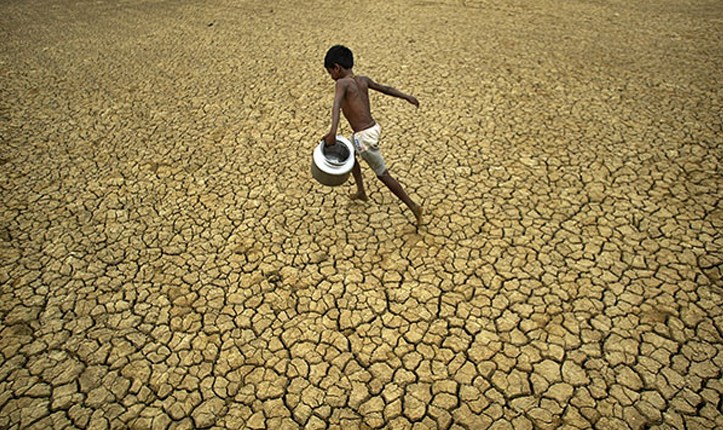Emergency appeal launched for the drought affected in Sri Lanka
3 November 2012, Colombo, Sri Lanka – The International Federation of Red Cross Red Crescent Societies (IFRC) has launched a one million Swiss franc (887,000 Euros) appeal to help the Sri Lanka Red Cross support over 125,000 people who have been suffering the effects of persistent drought in seven districts in northern and central Sri Lanka.
The Government of Sri Lanka estimates some 1.8 million people are affected by the drought, a result of poor rains since December 2011. The situation has now been worsened by the recent impact of cyclone Nilam which struck the island last week, bringing heavy rains, floods and landslides that affected over 50,000 people and displaced close to 5000 across the island.
“Such adverse weather is typical of the effects of climate change; people are now even more vulnerable”, says Bob McKerrow, the IFRC’s head of delegation in Sri Lanka. “These rains won’t make a big difference to farmers and rural communities who have suffered from the drought. Their water sources are contaminated, they have the lost majority of their crop and seeds and their livelihoods are at risk”.
The IFRC appeal is seeking funding to provide safe drinking water and water storage to communities and schools, as well as cash grants and vocational training to restart farming, home gardening or other ways to make a living. Over the next 18 months the operation will also support the rehabilitation of small irrigation tanks and construction of agro wells in remote rural areas. Communities in seven drought affected districts will be supported to become more resilient in order to cope with and survive from natural disasters.
Many families have lost their seed stocks, raising concerns about their food security. The Food and Agriculture Organization of the United Nations (FAO) Rice Market Monitor Report July 2012 warns the dry spell is presently expected to cut the year end crop by third. There is an urgent need to restore irrigation systems like water canals and culverts as well as to de-silt small tanks and reservoirs to increase water carrying capacity.
For the second consecutive season, rainfall has been insufficient. According to the Sri Lanka Red Cross, water tanks have dried up and people living in remote areas of the worst hit districts do not have access to safe drinking water. The worst affected districts – Anuradhapura, Polonnaruwa, Puttalam, Kurunegala, Monaragala, Hambantota and Mannar – are experiencing substantial harvest failure, water scarcity, and deteriorating pasture conditions. People do not have enough water for gardening or farming, putting their livelihoods at risk.
“I visited the area and witnessed the harsh conditions these people are undergoing everyday,” says the President of Sri lanka Red Cross, Jagath Abeysinghe. “Due to the drought many failed to yield a good harvest or to cultivate in the first part of the year. This means people have less money to buy seeds and cultivate through until the next dry season.”
According to the Metrological Department of Sri Lanka, rainfall on the island has been declining over the last 30 to 40 years. The Red Cross is advocating for climate smart programming in an effort to mitigate the risk of adverse weather events.
